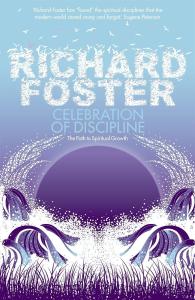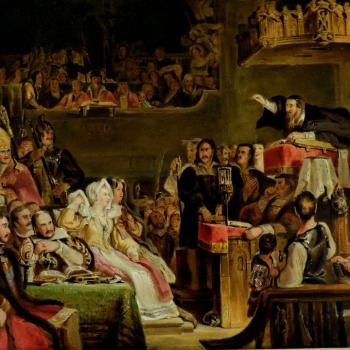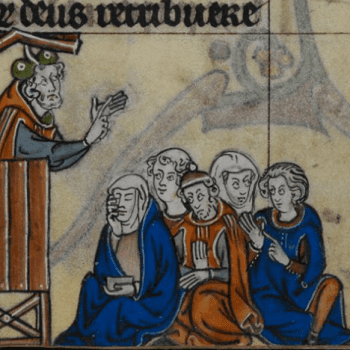Americans were expecting this presidential election year to be full of “unprecedented” events, and the news headlines have not disappointed. (I’m not even going to begin to include links!) But on top of the political spectacles, court rulings, and the flood of campaigning hyperbole and misrepresentations, it also seems to be an exceptionally emotional presidential election year for Americans. What I mean by “emotional” is the wide range of emotions, from being totally “checked out” to being very excited, with the same person sometime experiencing both extremes.
Before Biden withdrew, it seemed that my acquaintances were emotionally and intellectually withdrawn from the race to an exceptional degree. As my friend Eric said months ago, “I don’t know how a Christian could be excited about either Trump or Biden.” Unlike four years ago, the collective tone of both Biden’s and Trump’s supporters seemed to be dominated by the “I’m voting against the other guy” sentiment. Very few seemed to be excited to vote for Biden, or vote for Trump. That was breeding a “race to the bottom” of political engagement for the politically informed. One of my friends who lives in a different pro-Trump part of the country than I do, recently remarked about the obvious lack of Trump yard signs and other paraphernalia this time around in his area. Quoting my friend Eric again, “I think everyone in America has already made up their mind about Trump and Biden.”
But then Biden withdrew, and Harris stepped up. My friend Eric’s analysis proved correct, as the numbers of undecided voters suddenly increased within a few days. (Eric also prophetically told me many months ago that there was “no way” Biden would be the Democratic nominee come November.) Although some of my acquaintances find Harris’s candidacy a very energizing turn of events, many others remain equally depressed about their November choices. In fact, those supporting Trump out of fear of the Democratic Party, are now experiencing increased anxiety over the conspicuous enthusiasm surrounding the “historic” Harris/Walz ticket and its apparent strength in swing states. For some, this year’s election is clearly becoming an emotional roller coaster.
For me, I’m looking for my peace in all of this but it’s really challenging. Presidential politics is an incredibly — and increasingly — difficult space for educated black evangelical Christians like myself with a historical understanding of how America arrived at the current level of social and political liberty enjoyed by its non-white citizens. Our dilemma is that national political rhetoric and prominent alliances, especially at the presidential level, presume that one party holds to biblically informed policies while the other party actively opposes those policies, or even God himself. That oversimplification is problematic enough, but then I know too much history to think that societies can’t reverse previously granted liberties to minorities. I am aware of too many similarities between some contemporary political and judicial reasoning, and former examples of the same that was purposely used to harm certain groups. I also have too much knowledge of the political tactics previously used to prevent some groups from exercising their constitutional rights.
This perfect storm of facts has caused me to not vote in recent presidential general elections. This year I may vote, but regardless, I will use the same principle this year that I used in previous years to guide my voting decision. I follow the maxim, “let your peace be your guide.” This comes from Colossians 3:15: “Let the peace of Christ rule in your hearts, since as members of one body you were called to peace. And be thankful.” The word translated “rule” here means “to act as an umpire” or “to arbitrate or decide.” The way I apply this is that if a communication, or way of thinking, or action, produces anxiety and worry within me, I presume there is something wrong with that communication, way of thinking, or action, and I alter them until I feel my peace return. I like how the Amplified Bible puts it: “Let the peace of Christ [the inner calm of one who walks daily with Him] be the controlling factor in your hearts [deciding and settling questions that arise].” For several year I have felt at peace not voting presidential general elections.
Philippians 4: 6-7 says said “Do not be anxious about anything, but in every situation, by prayer and petition, with thanksgiving, present your requests to God. And the peace of God, which transcends all understanding, will guard your hearts and your minds in Christ Jesus.” (NIV) The word translated “guard” is a military term, so if we pray with a spirit of thankfulness, He promises that His peace will literally be a sentry to guard our heart and mind. After all, Isaiah prophesied that His name would be called “Prince of Peace!” (Isaiah 9:6)
Passages like these are very relevant to me because the vast majority of presidential level political rhetoric I read and hear disturbs my spirit, rather than nurturing the fruit of peace (Galatians 5:22). As soon as I feel fear rising up in me from a political communication I distance myself from it because I suspect that the communicator was intentionally trying to make me fearful (that is fearmongering, not providing useful information to a voter), and I don’t want to subject my spirit to that kind of communication because Philippians 4:8 tells me that is unbiblical. Historians don’t only ask what a document is saying, but what it is doing. We must be aware of what communication is doing, because in politics far more communications than not are dressed up as useful information, but in fact are designed to shut down thought. This kind of communication disturbs my spirit.
As Jesus made His Palm Sunday entrance into Jerusalem, He lamented that the city didn’t know what would bring it peace. (Luke 19:42) As we head into the November 5 election, do you know what brings you peace? If you do, are you nurturing that thing? May I suggest a few ways to nurture your inner peace?
Many years ago one of my friends said to me, “I need to start my confessions again.” I didn’t ask him the details of what he meant, because in the context I understood what he meant, and one’s confessions can be very personal. What are you confessing over your life? What are you confessing over this nation? Here is some of what I regularly confess:
Father, today I submit to your Lordship and call for Your Kingdom to come and Your will to be done in my life, my marriage, my family . . . South Carolina, and the United States of America, just as it is done in heaven.” I also confess, “Lord, I thank You, that I am part of the Body of Christ and satan has no power over me for I overcome evil with good. I am far from oppression and fear does not come near me because the Lord is my light and my salvation; whom shall I fear? The Lord is the strength of my life, of whom shall I be afraid? I will say of the Lord, “He is my refuge and my fortress; My God, in Him will I trust . . . For You shall give Your angels charge over me, To keep me in all my ways.” Today I put on the whole armor of God, and I am victorious against my enemy and against his power, against principalities and against the rulers of the darkness of this world, and against spiritual wickedness in high places. I declare that no weapon formed against me shall prosper because my righteousness is of the Lord.
What are you confessing? Do you need to start — or re-start — your confessions?
Do you know how to “encourage yourself in the Lord” as David did? I Samuel 30:6 says, “And David was greatly distressed; for the people spake of stoning him, because the soul of all the people was grieved, every man for his sons and for his daughters: but David encouraged himself in the Lord his God.” Because David was such a psalmist, I suspect that in this dire situation he was able to encourage himself in the Lord by practicing the Pauline admonition from Ephesians 5:19: “Speaking to yourselves in psalms and hymns and spiritual songs, singing and making melody in your heart to the Lord” Does what you listen to, and what you sing, increase or diminish your peace? Does what you recite and what you see, increase or diminish your peace?
Finally, one friend texted the following to me this summer after reading a depressing political headline: “I don’t know what to feel. I know what I think, but the feelings are odd and uncharted somewhat. Just trying to figure out how I’m going to not succumb to overwhelming anxiety.” My response was, “It’s time to draw closer to God and double down on your spiritual disciplines.”
If you are struggling with anxiety, stress, fear, or emotional numbness because of our nation’s political climate, how are you doing with your spiritual disciplines? If we don’t continually practice these disciplines in our lives, our process of being formed into the image of Christ is being stalled or aborted, and worse, we are allowing our prosperity (an overabundance of things, things to do, and places to go) to overwhelm us, which Jesus says chokes our spiritual growth and makes us spiritually unfruitful (Mark 4: 1-20).
If you are struggling to manifest the fruit of peace in the midst of this presidential election campaign, how are you doing with practicing your spiritual disciplines? The most practical list I’ve read is in Richard Foster’s Celebration of Discipline where he breaks them down into three kinds: Inward (meditation, prayer, fasting, study), Outward (simplicity, solitude, submission, service) and Corporate (confession, worship, guidance, celebration). A thorough application of these disciplines changes us because they more thoroughly empower the Prince of Peace to rule our hearts, or inner man.
At the end of the day, politics is about human power, but our faith is about being in right relationship with the lover and savior of our souls and with our fellow man. The former is temporary; the latter is eternal. Let’s not allow natural things to cause us to lose sight of eternal things. Even so, “come Lord Jesus.”

















